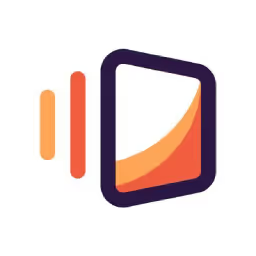D7 Lead Finder Alternatives
This guide reviews 10 D7 Lead Finder alternatives. We compare features, pricing, and data quality to help you choose the right replacement.

D7 Lead Finder is a popular tool for finding local business leads. It performs well when you need to quickly gather data on small businesses, create outreach lists in minutes, and see if a company is already advertising online.
However, some users report drawbacks like poor customer support or messy data, which might lead you to seek alternatives. We analyzed the top alternatives based on G2 reviews to help you shortlist your options. Let's get started.
Consider 11x Digital Workers
Before we review direct D7 alternatives, consider 11x if you are interested in digital workers for sales. These autonomous agents handle specific tasks to support your sales team.
They can manage research, outreach, and other routine sales activities. This offers a way to add specialized support without an increase in headcount.
At 11x, we provide a GTM platform where AI agents manage your sales process. Our agent, Alice, finds prospects, runs outreach on email and LinkedIn, and updates your CRM.
Julian, another agent, qualifies inbound leads and books meetings. Our platform replaces separate tools for data enrichment, outreach, and email warmup.
D7 Lead Finder Alternatives
This section details the top alternatives to D7 Lead Finder. Each review covers pricing, main features, and a comparison of strengths and weaknesses against D7.
1) ZoomInfo SalesOS
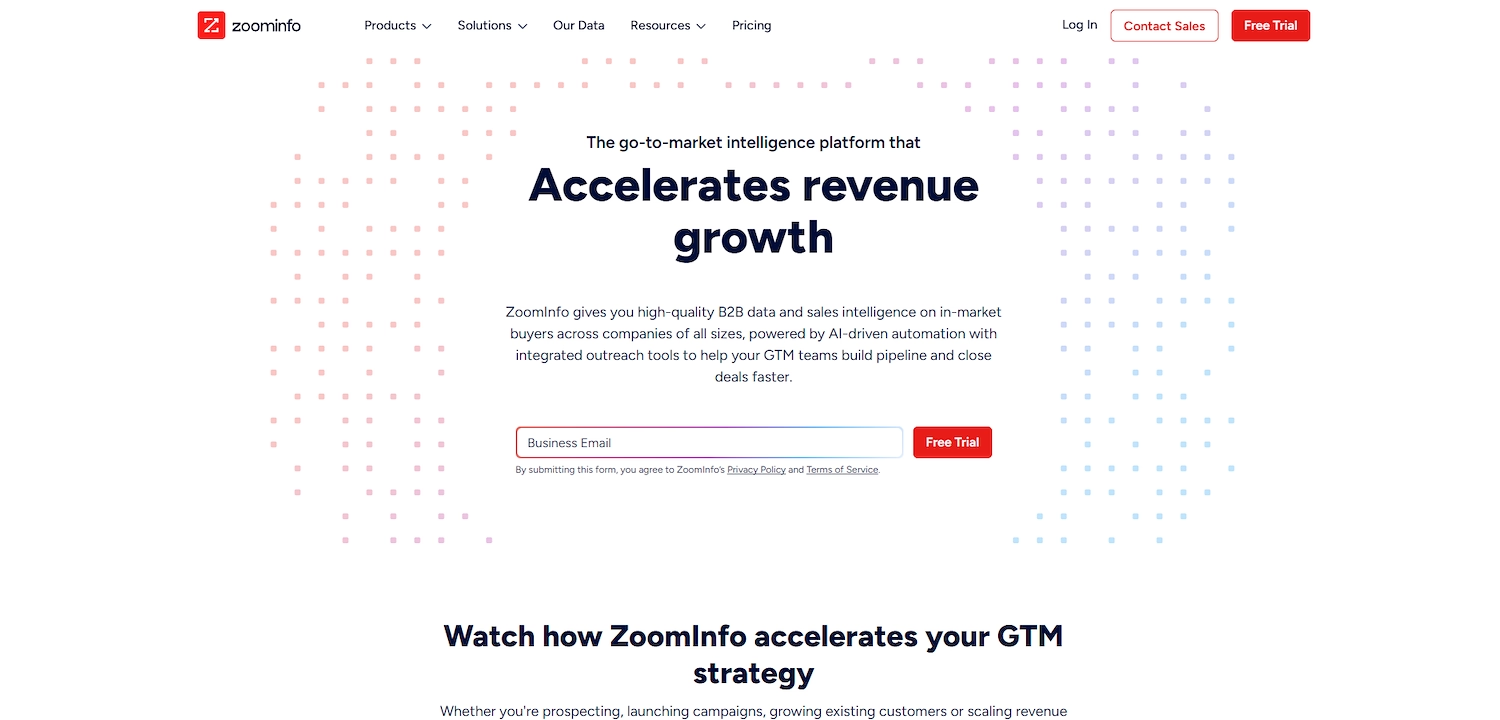
ZoomInfo SalesOS is a go-to-market intelligence platform for B2B organizations. It unifies company data, buyer intent signals, and engagement tools into a single system. The platform offers a source of truth for sales, marketing, and operations teams.
Primary uses include prospect list creation and pipeline generation. It helps teams identify in-market accounts and provides the contact information to connect with them across multiple channels.
ZoomInfo SalesOS's Main Features
- Identifies ready-to-buy prospects using real-time intent signals.
- Analyzes call and meeting interactions with its conversation intelligence feature.
- Triggers go-to-market activities automatically through workflows.
- Appends and refreshes CRM data in real time for lead enrichment.
ZoomInfo SalesOS vs. D7 Lead Finder
Average Review Score: 4.5/5 stars based on 8,738 G2 reviews.
- ZoomInfo SalesOS provides buyer intent data to identify prospects ready to buy, a feature not present in D7 Lead Finder's basic list generation.
- It automatically cleans and enriches CRM data, which helps maintain accuracy, a potential challenge with data from D7 Lead Finder.
- The platform includes conversation intelligence to analyze sales calls and meetings for insights, a capability that D7 Lead Finder does not have.
- Its generative AI assistant recommends who to contact and what to say, offering predictive guidance not found in D7 Lead Finder.
Potential Drawbacks Compared To D7 Lead Finder
- The platform's complexity might be a drawback for users who only need to generate simple business lists quickly, a task where D7 Lead Finder excels.
- It often requires a significant financial investment. Some teams may find the typical 14-month return on investment unsuitable if they need immediate, low-cost leads similar to those from D7.
- While it offers a vast B2B database, the tool may not always match D7 Lead Finder's specific focus. D7 specializes in data collection from online maps for hyper-local businesses.
Budget and Pricing Considerations
D7 Lead Finder has a reported price of $95 per month, offering a predictable cost. In contrast, ZoomInfo SalesOS does not provide public pricing and typically requires a significant investment based on a custom quote, positioning it for larger enterprise needs.
2) Apollo.io
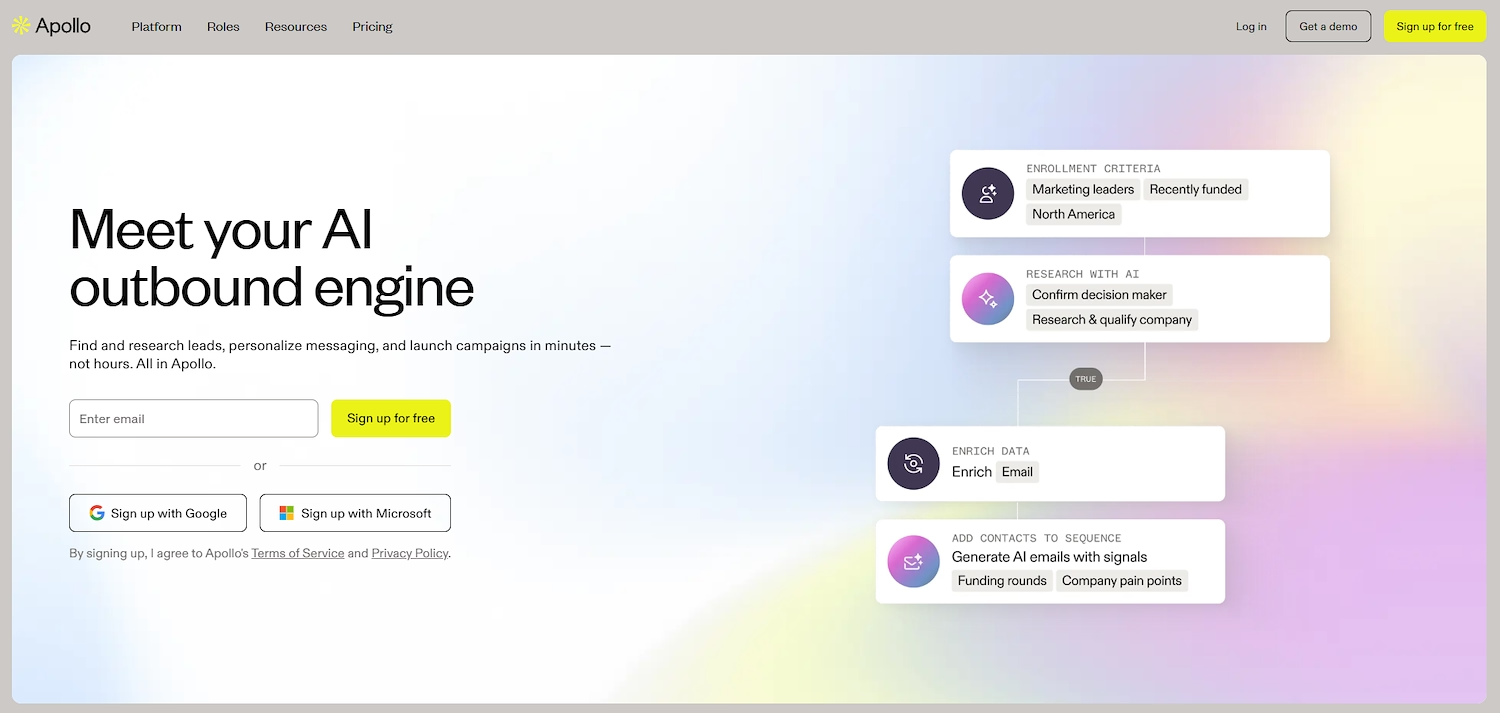
Apollo.io is a sales intelligence platform with a database of over 270 million B2B contacts. Sales teams use it to find prospects, check contact details, and connect with potential customers via its outreach tools.
You can use the platform to build lists and enrich your data. Its search filters let you target specific locations, so it is an option to consider for local business leads.
Apollo.io's Main Features
- Filters its database of over 270 million contacts using advanced search criteria.
- Enriches CRM data with verified contact details, including email addresses and phone numbers.
- Executes automated outreach with multi-step email and LinkedIn sequences.
Apollo.io vs. D7 Lead Finder
Average Review Score: 4.7/5 stars based on 8,904 G2 reviews.
- Apollo.io includes an engagement suite to automate outreach sequences. This allows direct contact with prospects, while D7 Lead Finder focuses on creating the initial list.
- It functions as an all-in-one platform that combines lead data with outreach tools. This is different from D7 Lead Finder, which specializes mainly in data collection.
- The tool automatically enriches CRM data with verified contact information. This helps improve data accuracy, which can be a challenge with D7 Lead Finder data.
- Its intelligence engine offers recommendations and analytics to support sales. This provides a layer of guidance not found in D7 Lead Finder.
Potential Drawbacks Compared To D7 Lead Finder
- Apollo.io's broad B2B database sometimes misses the hyper-local small businesses that D7 Lead Finder finds. D7 specializes in scraping data from online maps, which can provide more specific results for local service providers.
- The tool's all-in-one nature can be complex for users who only need a simple list. D7 Lead Finder offers a more direct approach for fast list generation without the need to manage extra features like outreach automation.
- Some users report that Apollo.io's data can be inaccurate, a common issue for large databases. D7 Lead Finder's focused scraping from a source like online maps may result in more consistent data for its specific niche.
Budget and Pricing Considerations
D7 Lead Finder is priced at $95 per month. In contrast, Apollo.io offers a free plan and paid tiers starting at $49 per user, making it more accessible for smaller budgets. For detailed pricing, visit Apollo.io's official website.
3) Hunter
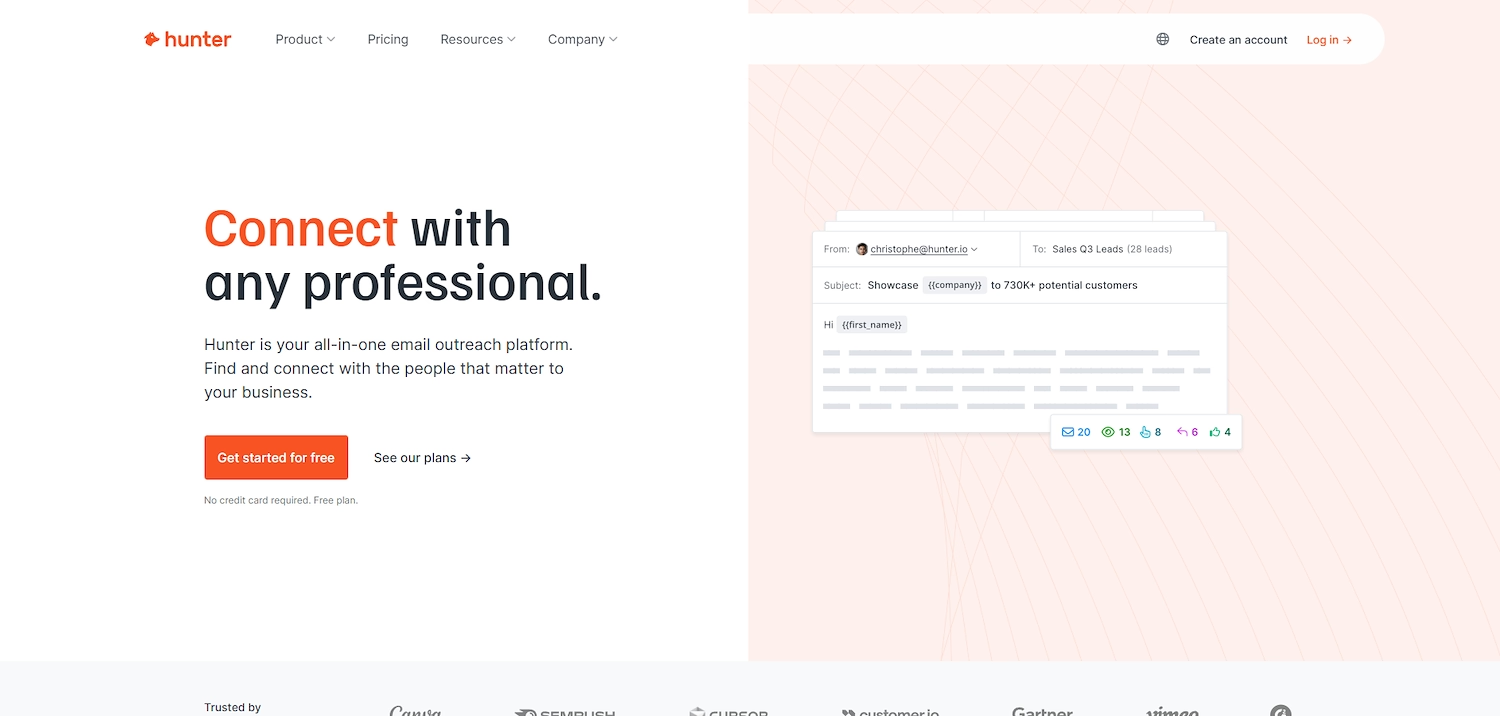
Hunter is an all-in-one platform for email outreach and lead generation. It helps businesses identify B2B prospects and locate their verified email addresses. Users can build targeted lists for sales or find decision-makers inside a company.
The service also runs cold email campaigns and verifies email lists to improve deliverability. Hunter is a cloud-based tool that offers a free plan to get started.
Hunter's Main Features
- Finds publicly available email addresses from a domain name or URL.
- Verifies email lists to reduce bounce rates and protect sender reputation.
- Runs cold email campaigns with personalized messages, follow-up scheduling, and performance analytics.
- Lists websites based on the technology stack they use.
Hunter vs. D7 Lead Finder
Average Review Score: 4.4/5 stars based on 592 G2 reviews.
- Hunter verifies email addresses to help reduce bounce rates. This provides an extra layer of data quality compared to D7 Lead Finder, which focuses on list generation.
- The platform includes a tool to run cold email campaigns. This combines data and outreach, while D7 Lead Finder requires a separate service to contact the leads it finds.
- It finds leads based on the web technologies a company uses. This is a search capability not available in D7 Lead Finder, which organizes leads by location and business category.
- This tool can find all known email addresses for a specific website domain. D7 Lead Finder, by contrast, gathers general business contact information from map listings.
Potential Drawbacks Compared To D7 Lead Finder
- Hunter finds contacts mainly through company websites. This method might overlook small local businesses that D7 Lead Finder identifies from online map data.
- The tool focuses on email addresses and may not provide the comprehensive business details, such as service categories, that D7 Lead Finder gathers from map data.
- Its search function is built around domains and company names. This is different from D7 Lead Finder's location-based search, which is more direct for finding local service providers.
Budget and Pricing Considerations
D7 Lead Finder is priced at a flat $95 per month. Hunter provides more flexible options, including a free plan and a starter tier at $49 per month, making it more accessible for smaller budgets. For detailed pricing, visit Hunter's official website.
4) Lusha
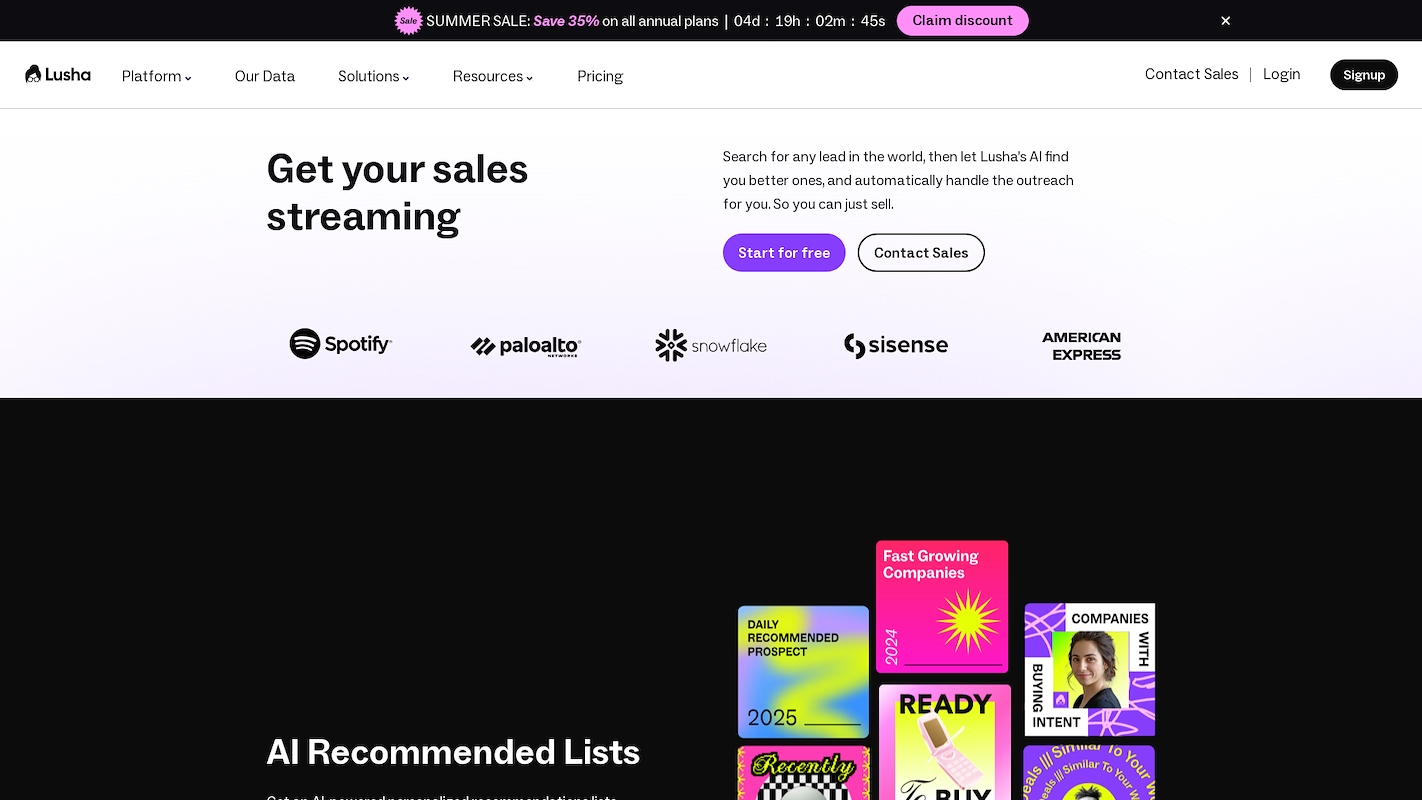
Lusha is a B2B data platform that provides contact and company information. Sales teams use it to find phone numbers and email addresses for prospects, including local businesses.
The tool helps companies build lead lists, enrich data, and connect with potential customers.
Lusha's Main Features
- Searches for contacts and companies using advanced filters like buyer intent and funding rounds.
- Spots in-market buyers and sends real-time notifications based on intent triggers.
- Generates live, auto-updating lead lists that continuously add new prospects at user-defined intervals.
- Records and analyzes sales meetings to provide performance insights.
Lusha vs. D7 Lead Finder
Average Review Score: 4.3/5 stars based on 1,516 G2 reviews.
- Lusha identifies prospects with buyer intent signals, which is different from D7 Lead Finder's lists based on location and business type.
- The tool creates live lead lists that update automatically. This feature delivers a continuous flow of new prospects, unlike the static lists from D7 Lead Finder.
- It integrates with your CRM to enrich existing data. This helps maintain data accuracy, a task that requires manual effort with lists from D7 Lead Finder.
- This platform offers conversation intelligence to analyze sales calls. This gives performance insights not available with D7 Lead Finder's data-only approach.
Potential Drawbacks Compared To D7 Lead Finder
- Lusha focuses on a broad B2B database. This approach sometimes overlooks the hyper-local businesses that D7 Lead Finder finds by scraping online map data directly.
- Its search function uses advanced filters like buyer intent. This is different from D7 Lead Finder's direct location-based search, which can be simpler for a user who needs local service providers.
- The tool primarily provides contact information like emails and phone numbers. It may not always offer the same business details, such as service categories, that D7 Lead Finder gathers from map listings.
Budget and Pricing Considerations
D7 Lead Finder is priced at a flat $95 per month. In contrast, Lusha offers more flexible options, including a free plan and paid tiers starting at $36 per user per month, making it more accessible for smaller budgets. For detailed pricing, visit Lusha's official website.
5) Snov.io
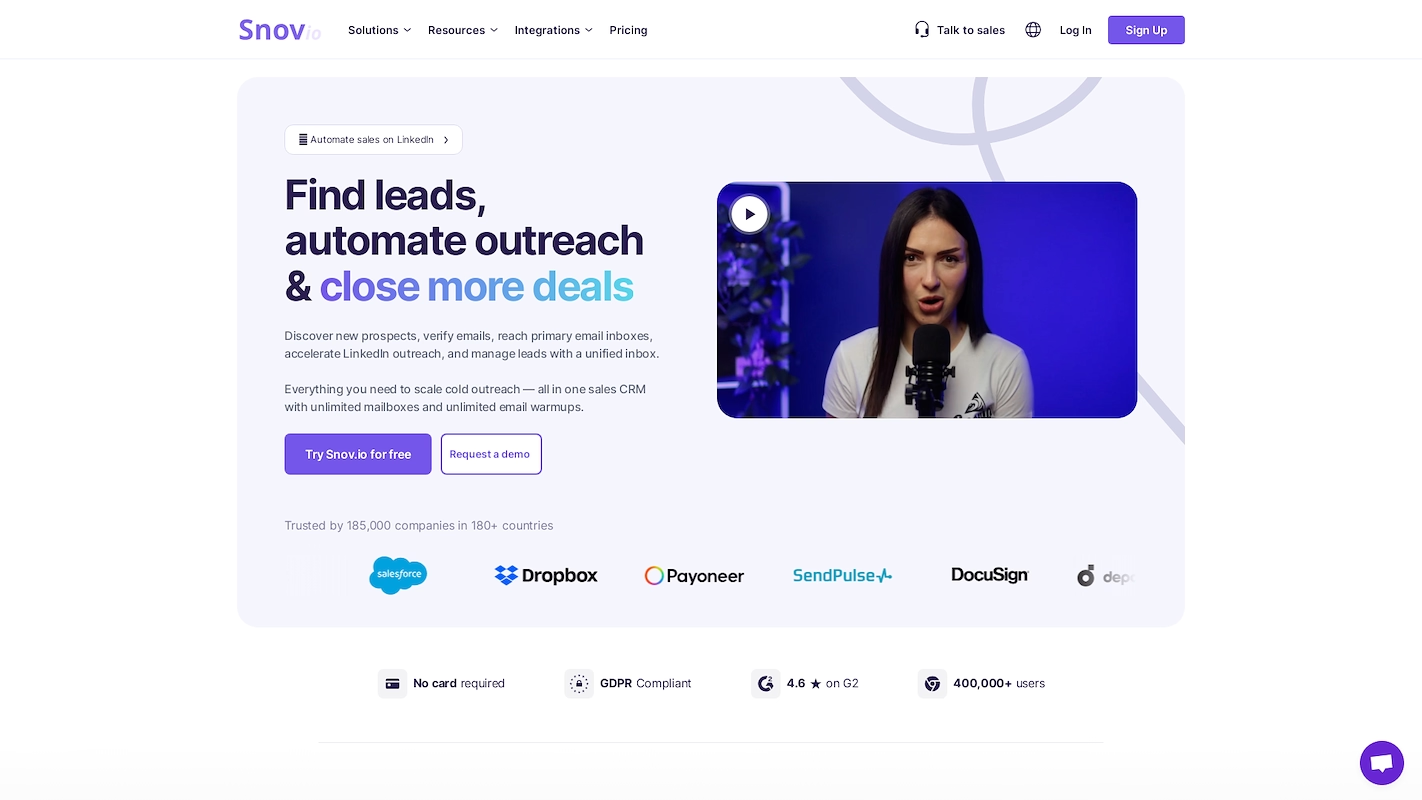
Snov.io is a sales automation platform used to find and verify work email addresses. You can use it to build contact lists for outreach, including local companies. The tool combines lead generation with an email campaign sender, so you can manage prospect engagement from one dashboard.
Snov.io's Main Features
- Verifies emails through a 7-tier process that provides 98% accuracy.
- Runs multichannel outreach campaigns with unlimited sender accounts and reply-sentiment analysis.
- Manages the sales pipeline with a built-in CRM that includes automated deal stages and Google Calendar sync.
Snov.io vs. D7 Lead Finder
Average Review Score: 4.6/5 stars based on 450 G2 reviews.
- Snov.io includes an email verifier to check contact accuracy. This is a step beyond D7 Lead Finder, which focuses on data collection without a verification feature.
- The platform has a built-in tool for sending email campaigns. This is different from D7 Lead Finder, where you need a separate service to contact the leads.
- It offers a simple, built-in CRM to manage the sales pipeline. D7 Lead Finder provides lead lists but does not include tools for deal management.
- This tool provides campaign analytics to track performance. In comparison, D7 Lead Finder delivers static lists without any performance metrics.
Potential Drawbacks Compared To D7 Lead Finder
- Snov.io focuses on a broad B2B database. This approach can sometimes miss the small, local businesses that D7 Lead Finder uncovers by scraping online map data directly.
- Its search function centers on company names and domains. This differs from D7 Lead Finder’s location-based search, which can be more straightforward for finding local service providers in a specific city or neighborhood.
- The platform focuses on finding email addresses. As a result, it may not provide the same level of business details, such as service categories, that D7 Lead Finder collects from online map profiles.
Budget and Pricing Considerations
D7 Lead Finder is priced at a flat $95 per month. Snov.io provides more flexible options, including a free trial, a starter plan at $39 per month, and a pro plan at $99 per month. This makes Snov.io more accessible for smaller budgets, while its Pro plan is priced similarly to D7 Lead Finder's single offering.
Automate Your Sales with 11x
If your goal is to automate sales tasks, consider 11x. Our digital workers manage prospect research, outreach, and lead qualification. This lets your sales team focus on deals.
Our platform provides a unified system for go-to-market activities. Agents like Alice and Julian handle routine work, from lead discovery to meeting schedules. This supports your sales operations without an increase in headcount.
With 11x, we run your sales playbook with AI agents. Alice finds prospects and handles outreach, while Julian qualifies inbound leads and sets meetings. Our platform replaces multiple GTM tools, so you can operate without additional hires.
Book a demo to see 11x in action.
6) Seamless.ai
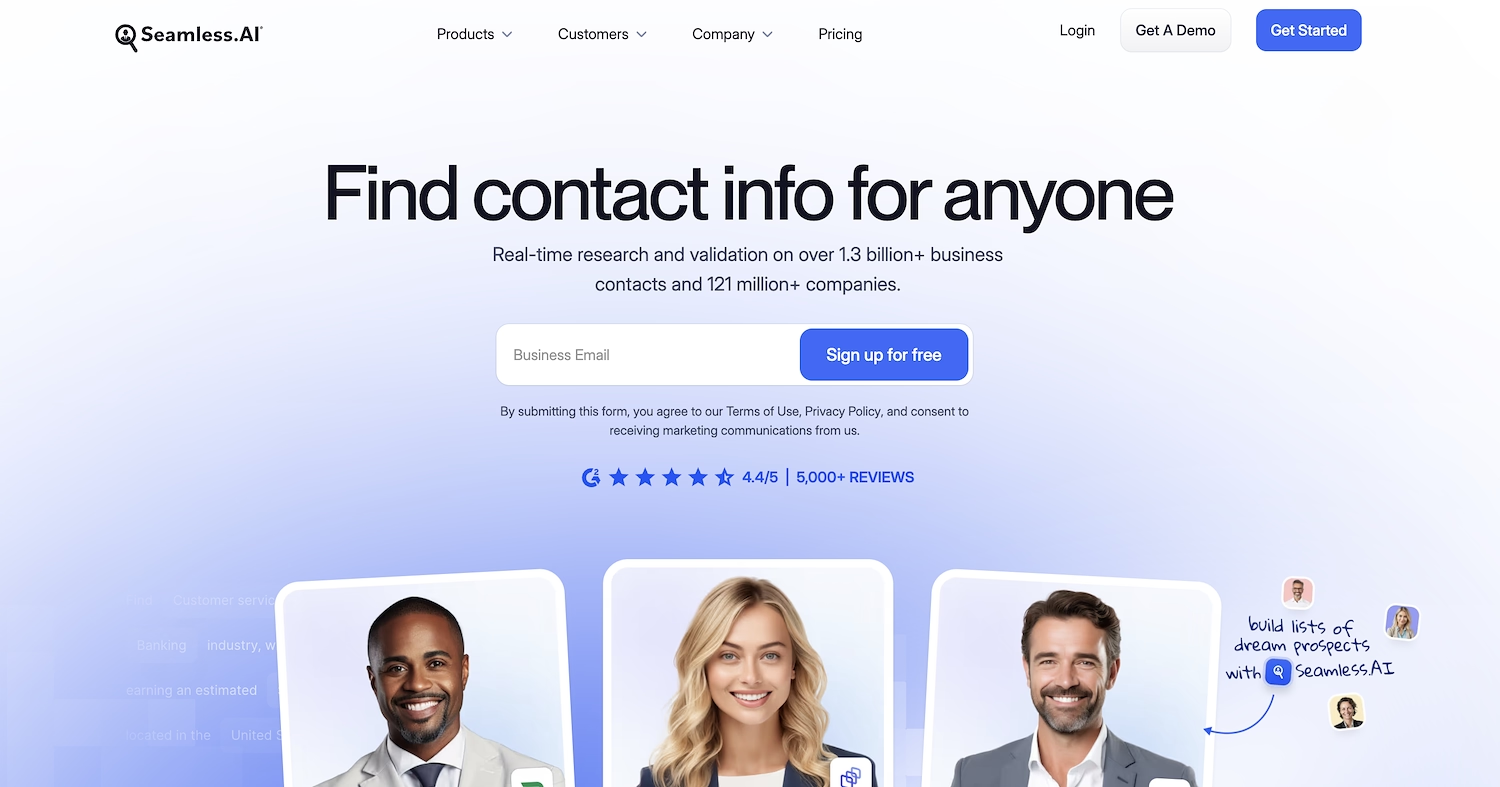
Seamless.ai is a sales intelligence platform that offers a database of B2B contacts and companies. Sales professionals use the tool to find prospect information and build lead lists. The platform's data includes local businesses, which supports outreach to specific geographic markets.
Seamless.ai's Main Features
- Surfaces prospects ready to buy based on intent signals.
- Detects and sends alerts on customer or prospect role changes.
- Generates research and personalized messaging for each prospect.
- Automates list-building workflows to maintain a continuous pipeline.
Seamless.ai vs. D7 Lead Finder
Average Review Score: 4.4/5 stars based on 5,067 G2 reviews.
- Seamless.ai uses buyer intent data to find prospects who are ready to buy, unlike D7 Lead Finder, which builds lists based on location and business type.
- It sends alerts when a prospect changes jobs, providing timely outreach opportunities not available with the static data from D7 Lead Finder.
- The tool generates research and personalized messages for each prospect, a feature not included with D7 Lead Finder's basic list generation.
- This platform automates list-building to maintain a continuous pipeline, which differs from D7 Lead Finder's on-demand list creation.
Potential Drawbacks Compared To D7 Lead Finder
- Seamless.ai focuses on a wide B2B database. This approach sometimes overlooks the hyper-local businesses that D7 Lead Finder uncovers by scraping online map data directly.
- The tool's search function is built for broad B2B prospecting. This is different from D7 Lead Finder's direct, location-based search, which can be simpler for users who only need to find local service providers.
- It primarily provides contact information like emails and phone numbers. This may not include the specific business details, such as service categories, that D7 Lead Finder often collects from map listings.
Budget and Pricing Considerations
D7 Lead Finder is priced at a flat $95 per month, while Seamless.ai does not have public pricing. For the most accurate information, we recommend visiting Seamless.ai's official website to request a custom quote.
7) Lead411
Lead411 is a B2B intelligence platform that offers company and contact data. Sales teams use it to find leads, get sales triggers, and access verified contact information. The tool helps identify companies that show signs of growth or buying intent.
Lead411's Main Features
- Provides sales trigger alerts for events like new hires, funding, and location changes.
- Offers intent data to identify companies actively researching relevant solutions.
- Includes a Chrome extension to find contact data while browsing websites.
- Verifies email addresses and phone numbers to improve contact accuracy.
Lead411 vs. D7 Lead Finder
Average Review Score: 4.5/5 stars based on 831 G2 reviews.
- Lead411 provides sales triggers and intent data, which helps teams prioritize outreach. D7 Lead Finder does not offer these predictive features.
- It includes contact verification to improve data quality. This is a step that D7 Lead Finder does not perform on its collected data.
- The platform focuses on B2B companies showing growth signals. This is a different approach from D7 Lead Finder's focus on local businesses by category.
Potential Drawbacks Compared To D7 Lead Finder
- Lead411's focus on growth companies may result in less coverage of the small, local businesses that D7 Lead Finder effectively scrapes from map data.
- The platform's features, like intent data, can add complexity. This might be unnecessary for users who only need simple list generation, a strength of D7 Lead Finder.
- Its database, while large, may sometimes have gaps for niche local industries, where D7 Lead Finder's targeted scraping can be more reliable.
Budget and Pricing Considerations
D7 Lead Finder has a set price of $95 per month. Lead411 does not publish its pricing and typically requires a custom quote for an annual plan. This positions it as a different type of investment compared to D7's monthly subscription model.
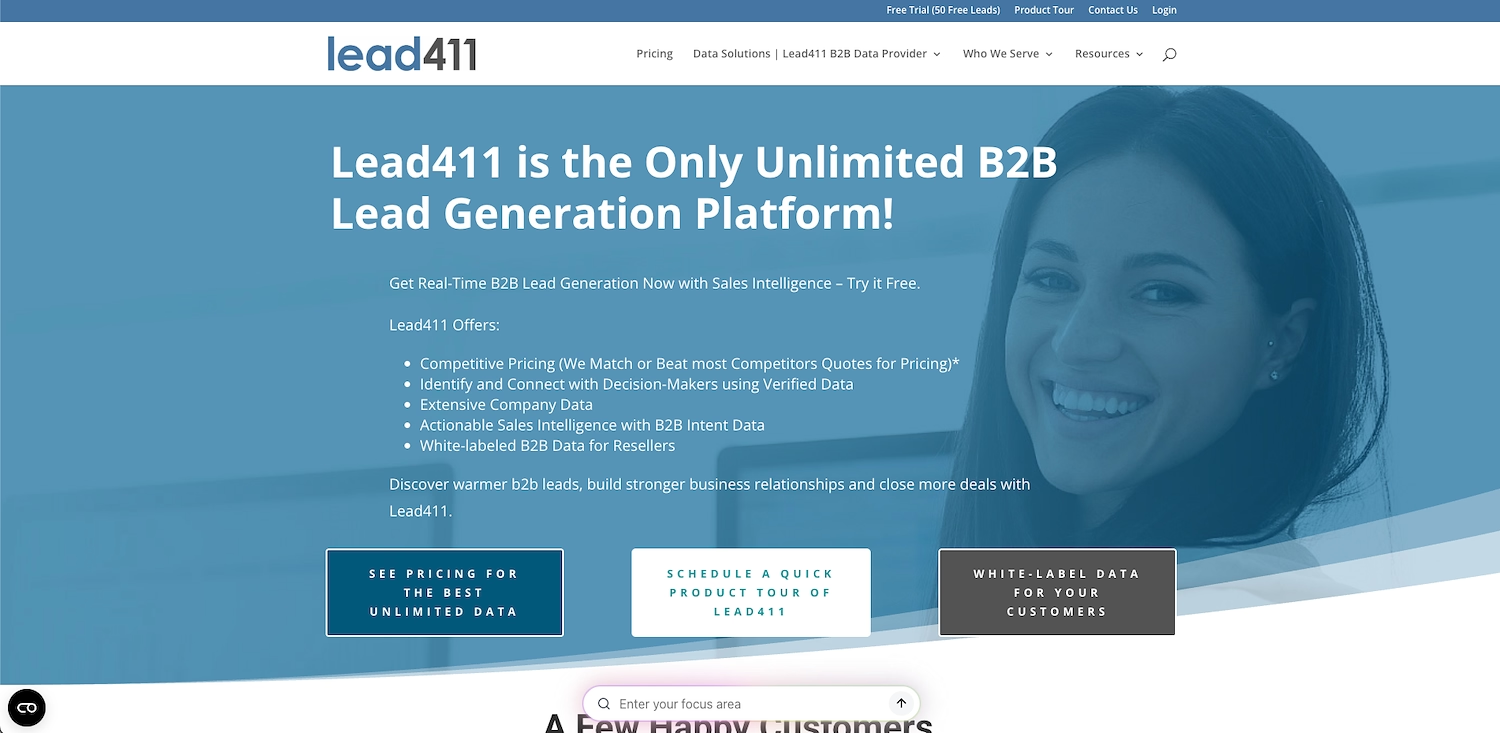
Lead411 is a B2B intelligence platform with company and contact data. Sales teams use it to find leads with verified contact details. The tool provides sales triggers for events like new hires or funding and identifies companies that show purchase intent based on their research activity.
Lead411's Main Features
- Provides trigger alerts for events such as funding rounds, new hires, and company expansion.
- Offers buyer-intent data through native signals and a Bombora integration.
- Includes a sales-engagement module for sending emails and managing outreach cadences.
Lead411 vs. D7 Lead Finder
Average Review Score: 4.5/5 stars based on 466 G2 reviews.
- Lead411 provides sales triggers for events like new funding or hiring. This is different from D7 Lead Finder, which creates lists based on location and business type without these dynamic signals.
- The platform offers buyer intent data to identify companies that actively research solutions. This provides a more direct way to find in-market prospects compared to D7 Lead Finder's general business data.
- This tool includes a sales engagement module for email outreach. This is different from D7 Lead Finder, which requires a separate service to contact the leads it finds.
- It verifies email addresses and phone numbers to improve contact accuracy. This addresses a potential challenge with D7 Lead Finder, which focuses on data collection without a built-in verification step.
Potential Drawbacks Compared To D7 Lead Finder
- Lead411 focuses on companies that show growth signals, so it might overlook small, local businesses. D7 Lead Finder, in comparison, specializes in scraping online map data, which can be more effective for finding hyper-local service providers.
- The tool's advanced features, such as intent data, can introduce complexity. For users who only need to generate a simple business list quickly, D7 Lead Finder offers a more direct process.
- It primarily provides contact data and company growth signals. This is different from D7 Lead Finder, which often collects specific business details like service categories directly from online map profiles.
Budget and Pricing Considerations
D7 Lead Finder has a set price of $95 per month, while Lead411’s Basic plan costs $75 per user per month with an annual contract. This makes Lead411's entry point more affordable for users committing to a year, though D7’s monthly model offers greater flexibility. For complete pricing on advanced plans, which require a custom quote, visit Lead411's official website.
8) Clearbit
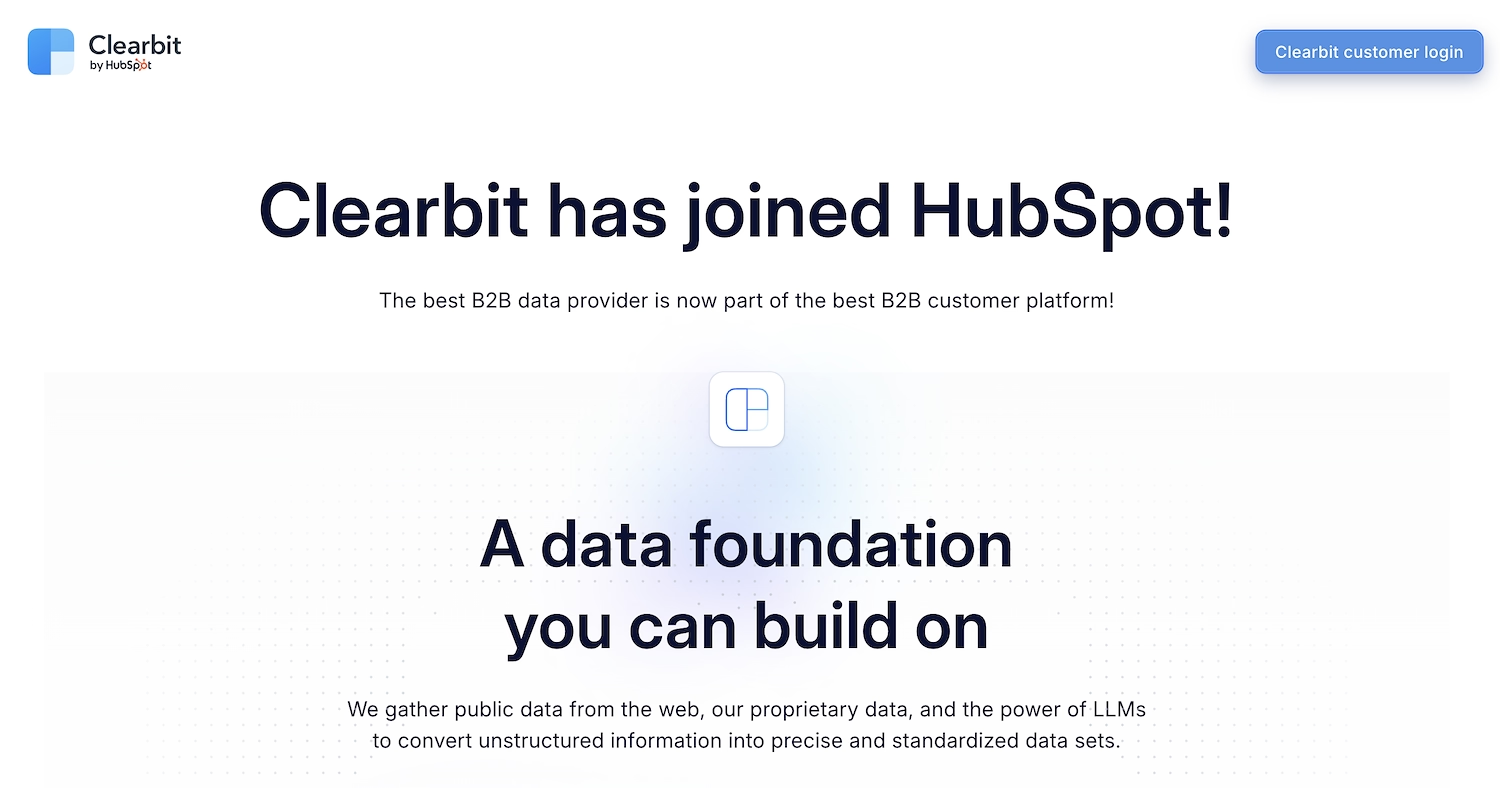
Clearbit is a marketing data platform that provides B2B intelligence. It offers real-time data to enrich records, identify anonymous website traffic, and reveal user intent. Businesses use this information to build a complete view of their market, including local companies, and to personalize outreach efforts.
Clearbit's Main Features
- Enriches records by appending over 100 data points to company and employee profiles.
- Identifies anonymous companies visiting your website and reveals their intent signals.
- Integrates with CRMs like HubSpot to automate data workflows and lead routing.
- Shortens website forms by hiding or autofilling known fields to increase conversions.
Clearbit vs. D7 Lead Finder
Average Review Score: 4.4/5 stars based on 626 G2 reviews.
- Clearbit enriches records with over 100 data points. This provides more detailed profiles compared to the basic business information D7 Lead Finder collects from map data.
- It identifies anonymous companies that visit your website. This provides a source of warm leads not available through D7 Lead Finder's static list-building process.
- The tool integrates directly with CRMs like HubSpot to automate lead routing. This is different from D7 Lead Finder, which requires users to handle data manually.
- This platform reveals user intent signals from website activity, a more dynamic approach than D7 Lead Finder's lists based on static business categories.
Potential Drawbacks Compared To D7 Lead Finder
- Clearbit's data primarily comes from companies with an established web presence. This approach sometimes overlooks the small, local businesses that D7 Lead Finder uncovers by scraping online map data.
- The tool's search is built around firmographics and intent signals. This is different from D7 Lead Finder's direct, location-based search, which can be simpler for users who only need to find local service providers.
- Some users may find that Clearbit's enrichment focuses more on contact and firmographic data. It might not always provide the specific business details, such as service categories, that D7 Lead Finder collects from map listings.
Budget and Pricing Considerations
D7 Lead Finder is priced at a flat $95 per month, offering a predictable cost. Clearbit does not provide public pricing and requires a custom quote, which typically suits enterprise budgets. For the most accurate pricing information, we recommend visiting Clearbit's official website.
9) UpLead
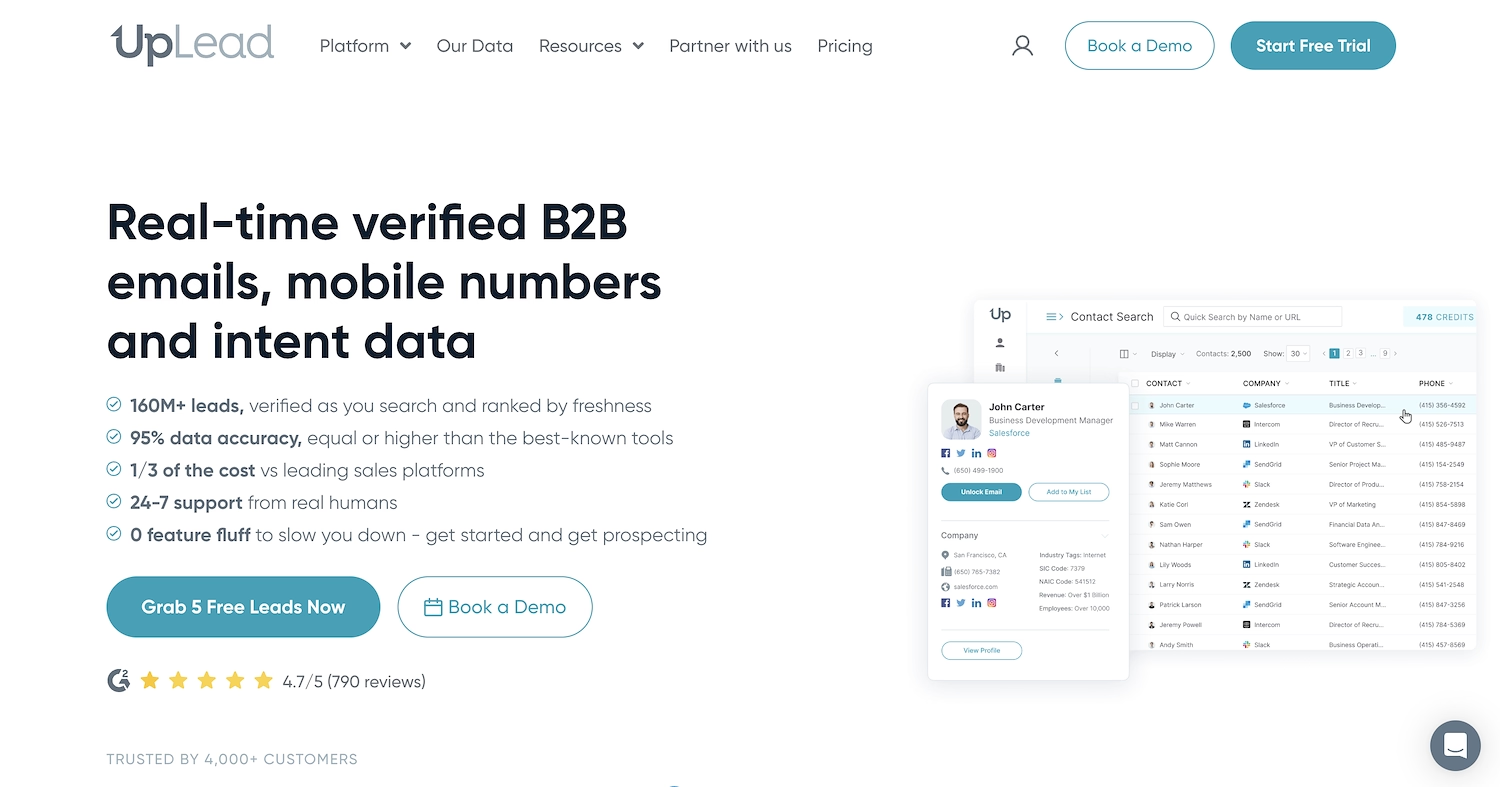
UpLead is a B2B data provider with company and contact information. Sales teams use the platform to build prospect lists with verified contact details. The database contains local business data, which supports targeted outreach in specific geographic markets.
UpLead's Main Features
- Provides real-time verification for email addresses to ensure accuracy.
- Uses more than 50 search filters, including intent data, to identify in-market buyers.
- Integrates with CRMs like Salesforce and HubSpot to automate data workflows.
- Enriches contact and company data to keep records current.
UpLead vs. D7 Lead Finder
Average Review Score: 4.7/5 stars based on 797 G2 reviews.
- UpLead verifies emails in real time to ensure accuracy, a feature not included in D7 Lead Finder's data collection process.
- The platform identifies in-market buyers using intent data, which is different from D7 Lead Finder's method of organizing leads by location and business category.
- This tool connects directly with CRMs to automate data workflows, whereas D7 Lead Finder lists require manual data handling.
- It provides over 50 search filters for granular targeting, allowing for more specific list-building than D7 Lead Finder's location-based search.
Potential Drawbacks Compared To D7 Lead Finder
- UpLead's broad B2B database sometimes misses the hyper-local businesses that D7 Lead Finder uncovers. D7 Lead Finder specializes in scraping online map data, which can be more effective for finding specific local service providers.
- The platform's search function, with over 50 filters, can be complex for users who only need a simple list. D7 Lead Finder offers a more direct approach with its simple keyword and location search for fast list generation.
- It focuses on contact and company data, so it may not always provide the specific business details, such as service categories, that D7 Lead Finder gathers from map listings.
Budget and Pricing Considerations
D7 Lead Finder is priced at a flat $95 per month. UpLead offers a free trial and tiered plans, with its Essentials plan at $99 per month, making its entry-level cost similar to D7's. This structure provides more flexibility and scaling options for different budget and feature needs.
10) RocketReach
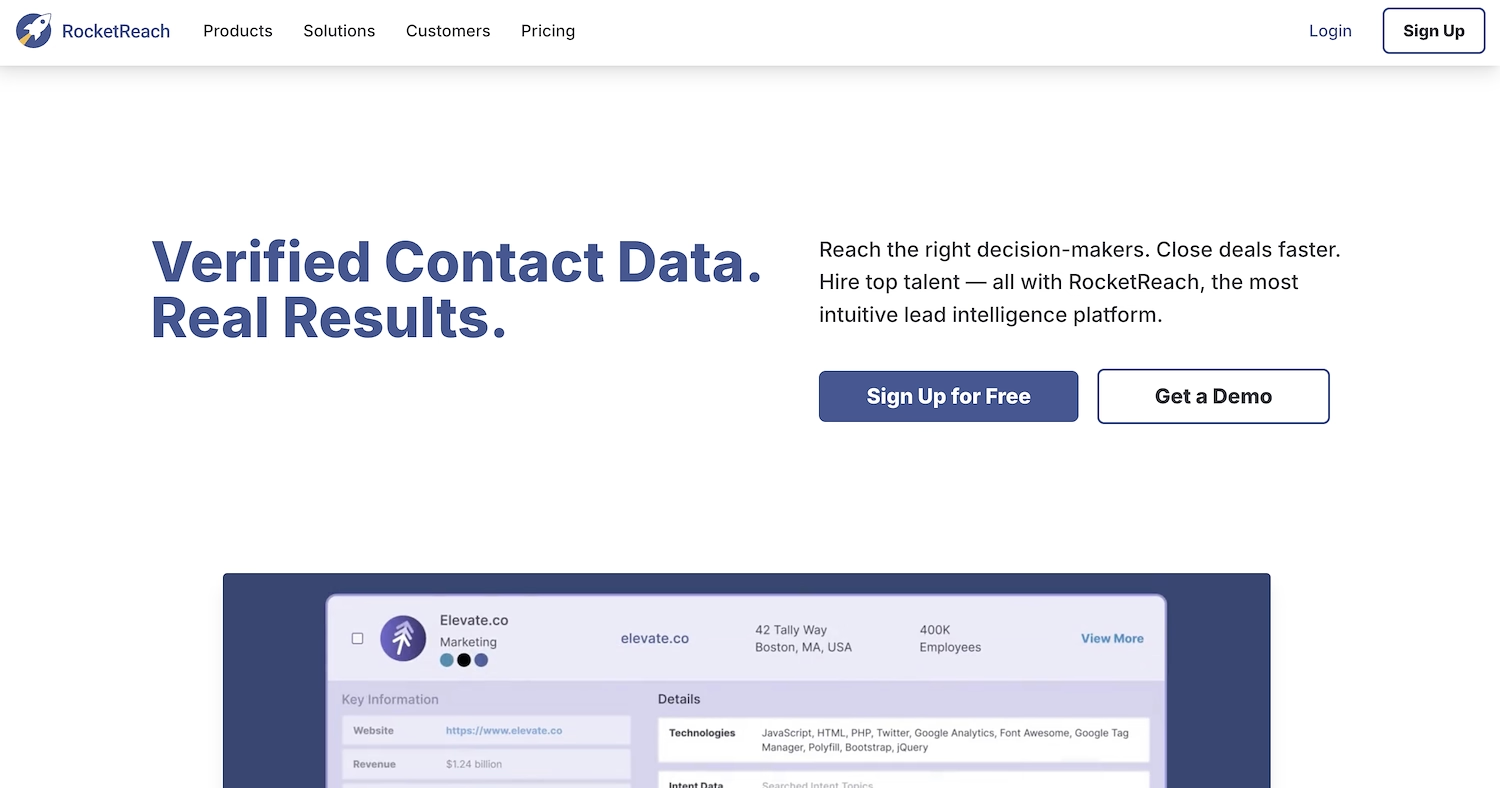
RocketReach provides access to a large database of B2B contacts. Sales teams use it to find email addresses and phone numbers for professionals and companies. The tool supports searches for local businesses, so users can build prospect lists for specific geographic markets.
RocketReach's Main Features
- Provides access to a database of over 700 million professionals and 35 million companies.
- Offers browser extensions for Chrome and Edge to find contact information while browsing.
- Includes bulk lookup capabilities and an API for large-scale data retrieval.
- Automates prospect discovery and engagement with its Autopilot feature.
RocketReach vs. D7 Lead Finder
Average Review Score: 4.4/5 stars based on 918 G2 reviews.
- RocketReach provides access to a database of over 700 million professionals. This is different from D7 Lead Finder, which focuses on scraping local business data from online maps.
- It includes browser extensions for Chrome and Edge to find contact data while visiting websites. This contrasts with D7 Lead Finder's platform-based search, which requires users to perform searches within the tool.
- The tool offers an API and integrations with CRMs like Salesforce. This automates data workflows, while D7 Lead Finder lists typically require manual import and management.
- Its Autopilot feature automates prospect discovery and engagement. This differs from D7 Lead Finder, which focuses solely on generating the initial lead list without outreach capabilities.
Potential Drawbacks Compared To D7 Lead Finder
- RocketReach's large database focuses on professionals with a web presence. This approach sometimes misses the hyper-local businesses that D7 Lead Finder finds by scraping online map data.
- The tool's search is built for broad B2B prospecting. This is different from D7 Lead Finder's direct, location-based search, which can be simpler for users who only need to find local service providers.
- It primarily provides contact information like emails and phone numbers. This may not include the specific business details, such as service categories, that D7 Lead Finder often collects from map listings.
Budget and Pricing Considerations
D7 Lead Finder is priced at a flat $95 per month. RocketReach offers a free plan and paid tiers starting at $99 per month. This makes RocketReach's entry-level paid plan comparable to D7's, but its tiered structure provides more flexibility for different usage needs.
Which One Should You Go With?
Choosing a D7 Lead Finder alternative depends on many variables, including your budget, target market, and existing sales tools. This guide reviewed several options to help you make an informed decision.
If your goal is sales task automation over data collection, consider 11x. Our digital workers handle prospect research, outreach, and lead qualification. This lets your sales team focus on deals, not manual work.


